As a puppy specialist, I’ve worked with a lot of puppies and owners in the last 25 years. Almost everyone struggles for the first few weeks. Below are five of the most frequent new puppy challenges mentioned when puppy parents contact me for guidance.
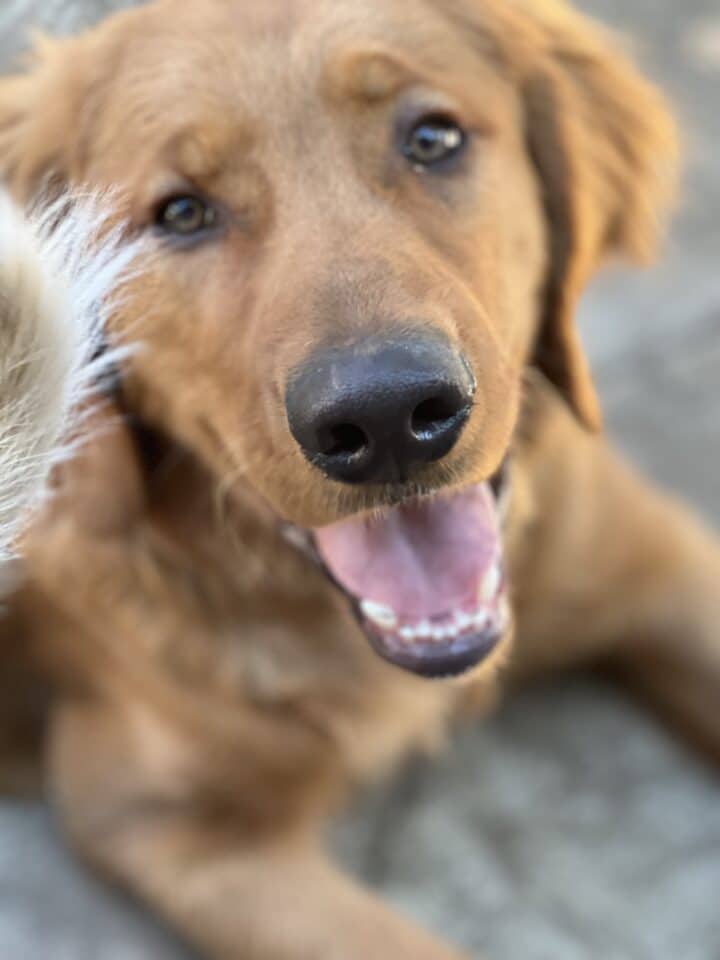
1) Welcome to the “honeymoon phase!”
When your puppy comes home for the first time, their entire world changes. Nothing is familiar, nothing makes sense, and mom’s not around to explain everything. Instinct tells puppies to avoid attracting attention in this situation, and to suppress behavior until they get the lay of the land.
This is known as the “honeymoon phase.” Puppies are often quiet and somewhat shy at this time, mostly because they’re confused and don’t know what’s expected of them. As your pup gains confidence they typically become more lively and less afraid to explore. It’s not uncommon for a puppy that was happy to be held indefinitely on day one to suddenly begin squirming after one minute or less, at the end of week one.
2) Trust is Key
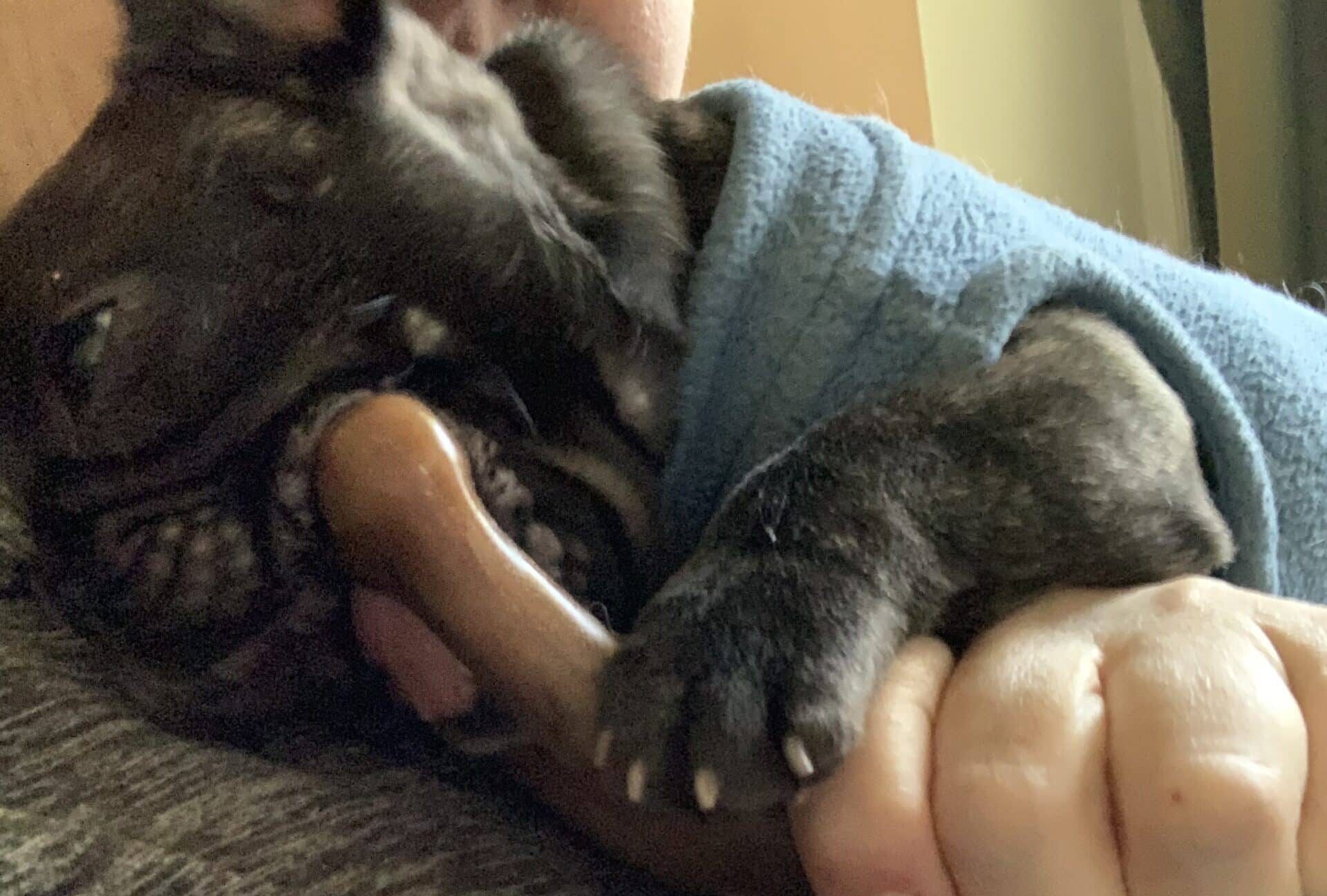
The first two weeks with a new puppy make a lasting impression. There will never be a more important time for your bond or your puppy’s understanding of the environment and their bond and trust in you. Waiting until they puppies have a chance to bond with you before introducing new places, new people, and new activities will give them a chance to learn your home and your expectations, first. Your puppy has a tremendous amount to learn getting acquainted with their new person, accustomed to a new home and routine. Asking anything else of them at this delicate phase is frequently overwhelming to puppies, in my experience. Their body language doesn’t lie.
Trust is the foundation of great puppy-person relationships. Forget about “obedience” or traditional “dog training,” at this stage. Focus your puppy’s energy becoming familiar with their new human(s), home and schedule, not to mention your methods of communication, house rules, house training and being alone at times for the first time in their short lives. fun.
Consistency is key for puppy learning and for building trust. When puppies learn what to expect, and what’s expected of them, apprehension and fear typically subside.
The absence of obedience and formal training doesn’t mean your puppy isn’t learning from the minute they arrive. If a puppy’s awake, they’re learning. This is why it’s far more compassionate in my mind to establish house rules from day 1, rather than permit behaviors I won’t be happy with in a few months.
Behaviors become habits with practice. Habits require 3-4 times as much work and time to extinguish.
3) Show, Don’t Tell!
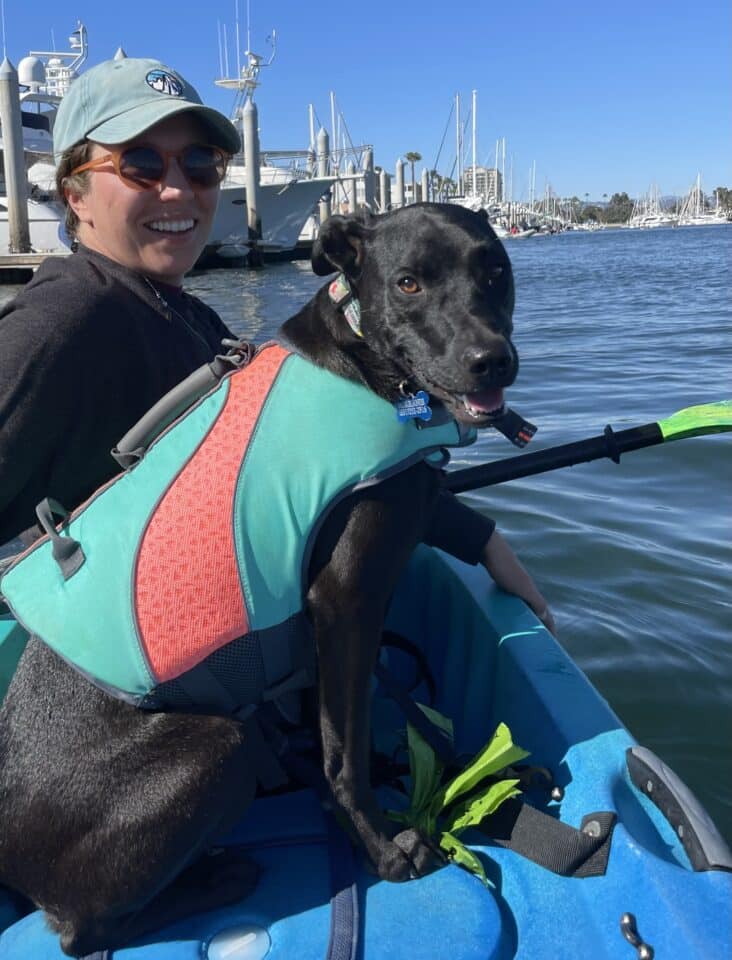
House rules such as where to eliminate, where to eat, where to sleep, and what a puppy is permitted to play with can be communicated from day one, if you show your puppy what you want of them, rather than tell them.
Puppies don’t speak English (or French, or Spanish, or Japanese).
Dogs are predominantly non-vocal communicators. Their native “language” is body language. Whether they’re communicating with a human or another dog, they learn based on what they see, not what’s said to them.
Additionally, human voices are exciting and usually distracting to puppies. The more we speak, the harder it can be for them to understand the meaning.
Most humans find it challenging to refrain from regular conversation with their canine companions. We’re hard-wired to talk. You’re not doing anything “wrong.” You’re being human.
Learning to communicate silently turns out to be the answer to behaviors we thought were problems, but were actually miscommunication between species. Silent/predominantly physical communication is more powerful and easier for puppies to learn.
Awareness is the first step. Pay attention to when you’re speaking to your puppy. When you catch yourself talking when you’re teaching, simply stop speaking and focus on body language.
In my experience puppies pay more attention, get less distracted, and imprint faster when we avoid speaking while they’re learning.
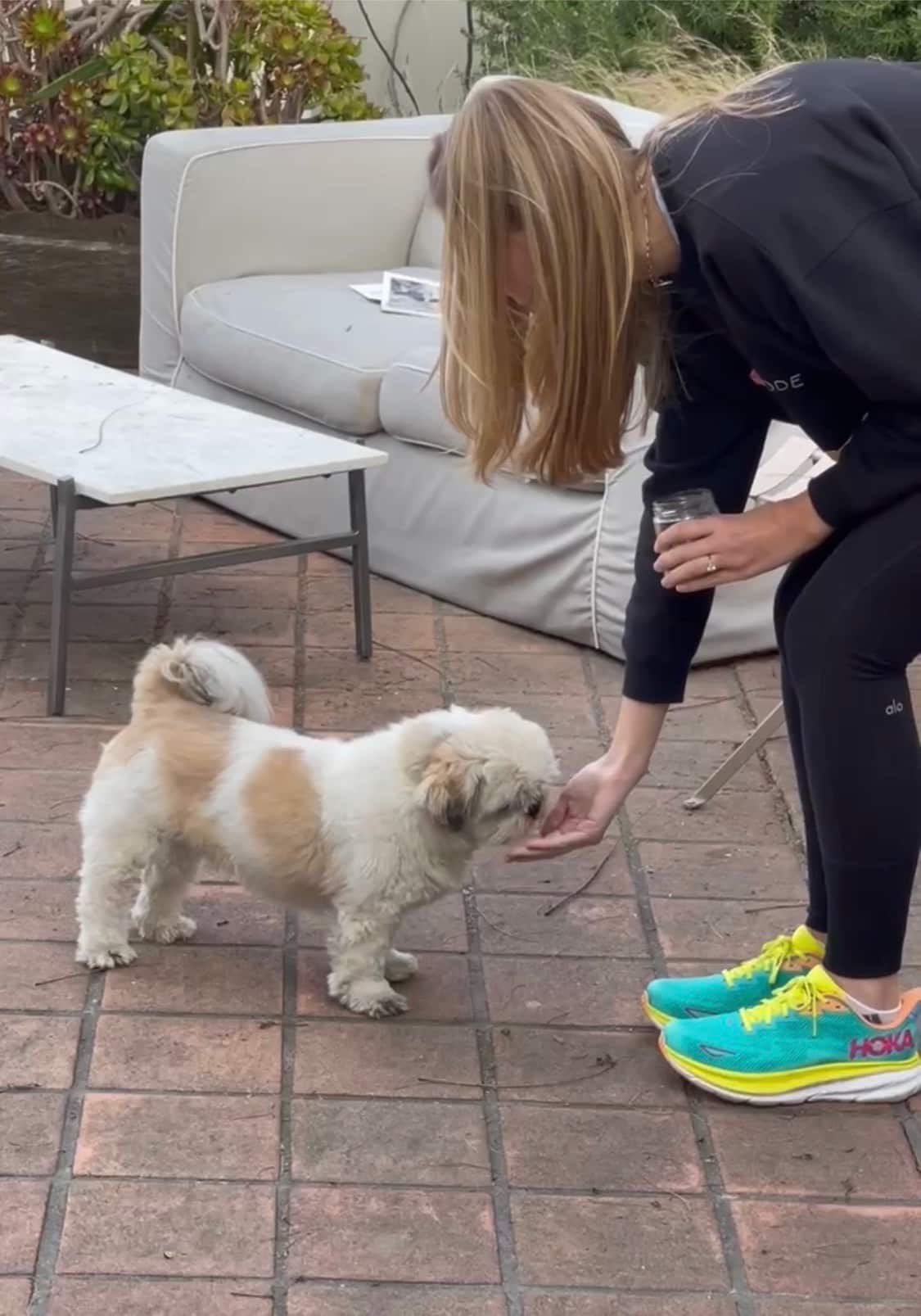
4) Sleep is Vital to Growth, Learning and Puppy Attitudes
Puppies sleep an average of 17 hours a day, including naps. Keeping a consistent schedule for your puppy to rest during daylight hours is one of the best ways to help them learn to sleep through the night.
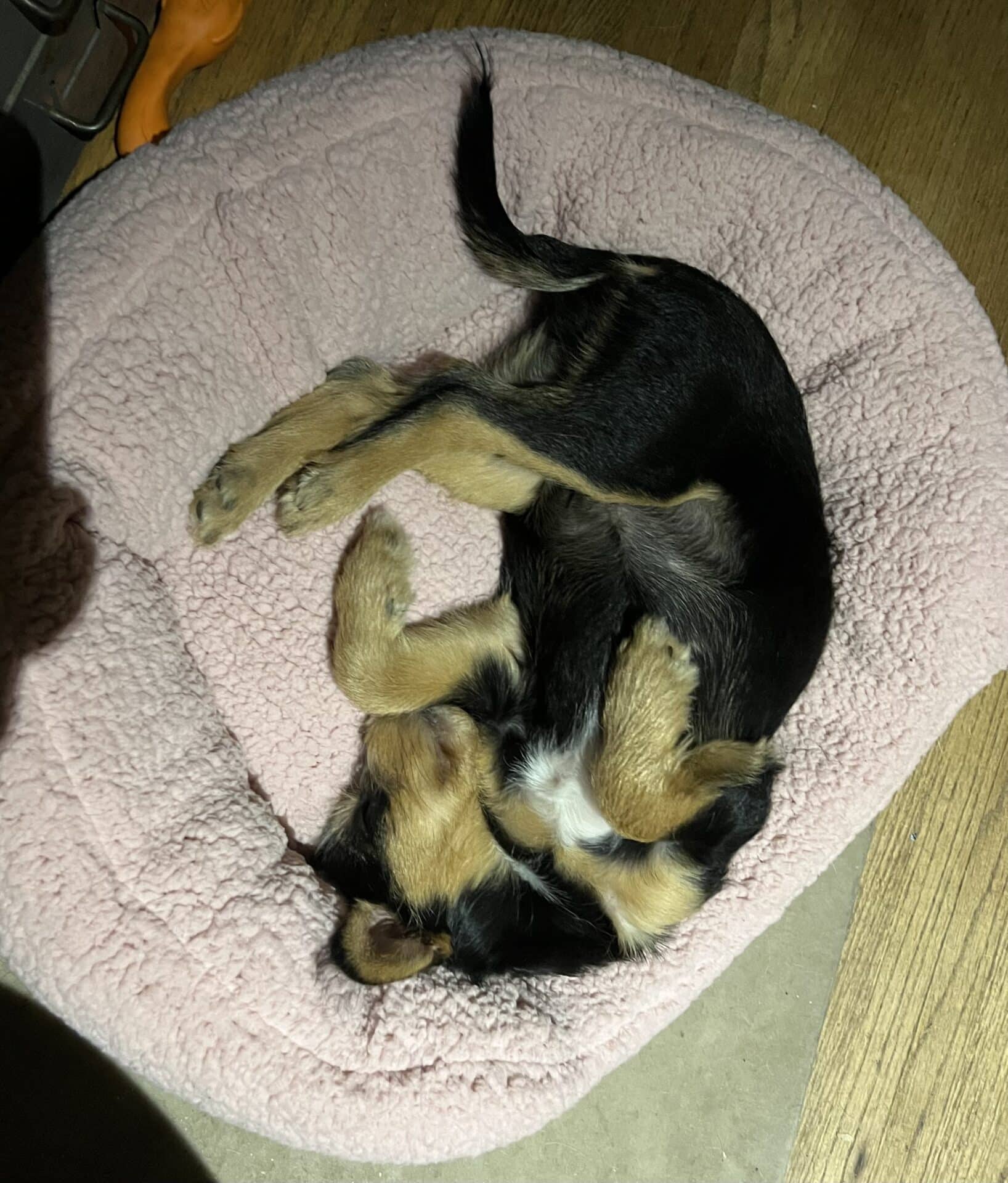
Puppy sleeping deeply in a “nest” or “donut” bed. His entire spine is supported by pillows.
Deep sleep comes from feeling secure. Puppies rarely sleep without touching each other or their mother, prior to leaving the nest. On their own, most dogs sleep with their back against something solid. This natural instinct helps puppies feel safe from attacks from behind.
Nest beds and a den in the pen can provide some of that sense of security. Dens can be crates or another type of indoor enclosure. You can remove the door or simply leave it open or unzipped.
The goal is a puppy happily seeking out the crate or carrier to rest in, on their own, before they’re transported in it. They’ll be far less stressed being transported in something familiar. This sets puppies up for a positive association with new places and experiences.
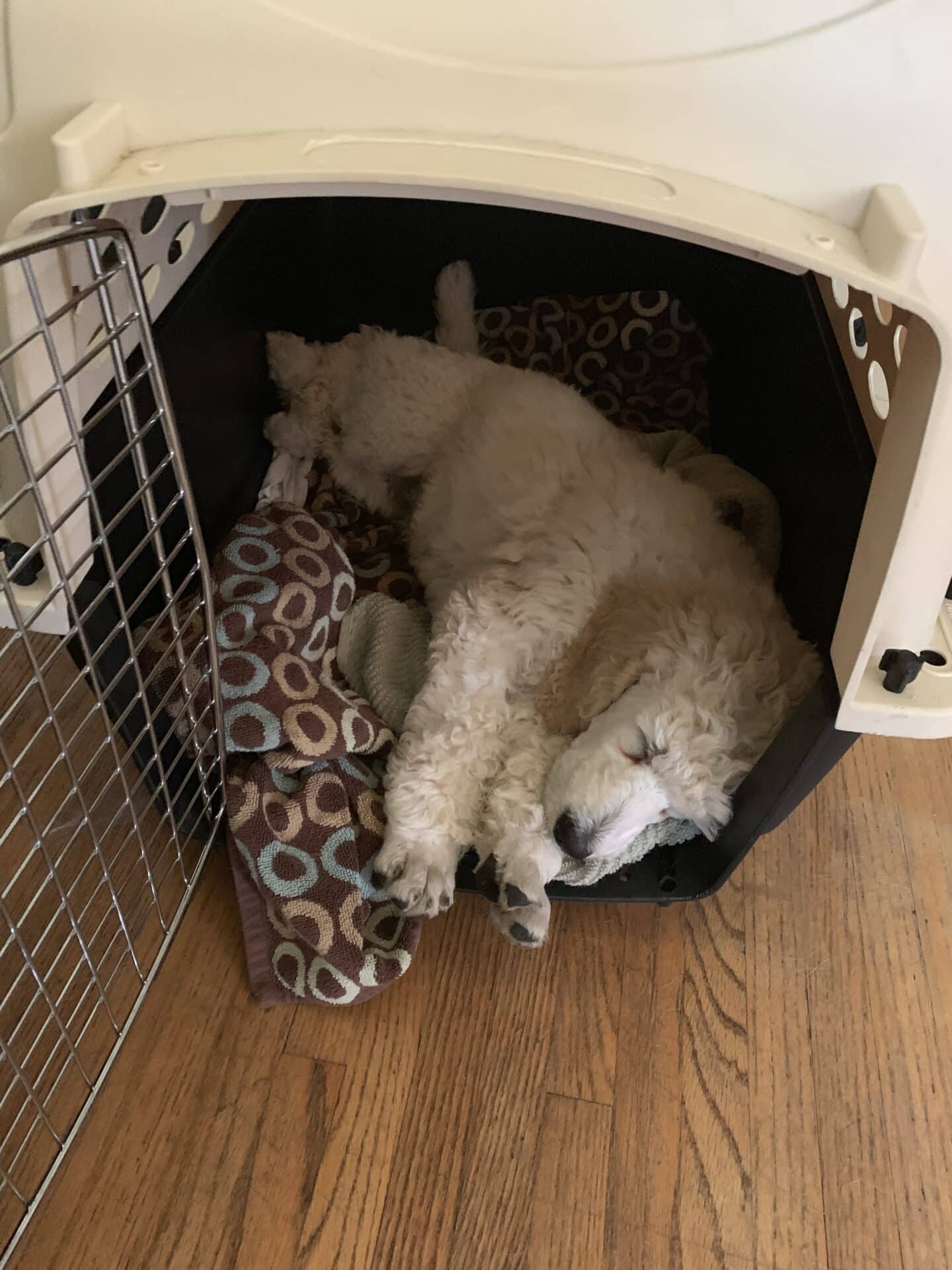
Sleeping in a human’s bedroom is very comforting to puppies. I find they learn to sleep through the night faster when they can catch our scent and hear us breathe in close proximity. Asking a (infant) puppy to sleep alone in a separate room can be traumatizing for them and result in unnecessary and avoidable puppy protesting (barking, whining, restlessness).
5) Pens Make Puppy-Raising Easier on Everyone
Puppy pens make it possible for puppies to safely play and nap unsupervised, assist with house training long before a puppy can be properly crate-conditioned, and gives their guardians time to shower, eat and work. Exercise pens can be as small as 24” square or expand up to an 8’ diameter circle.
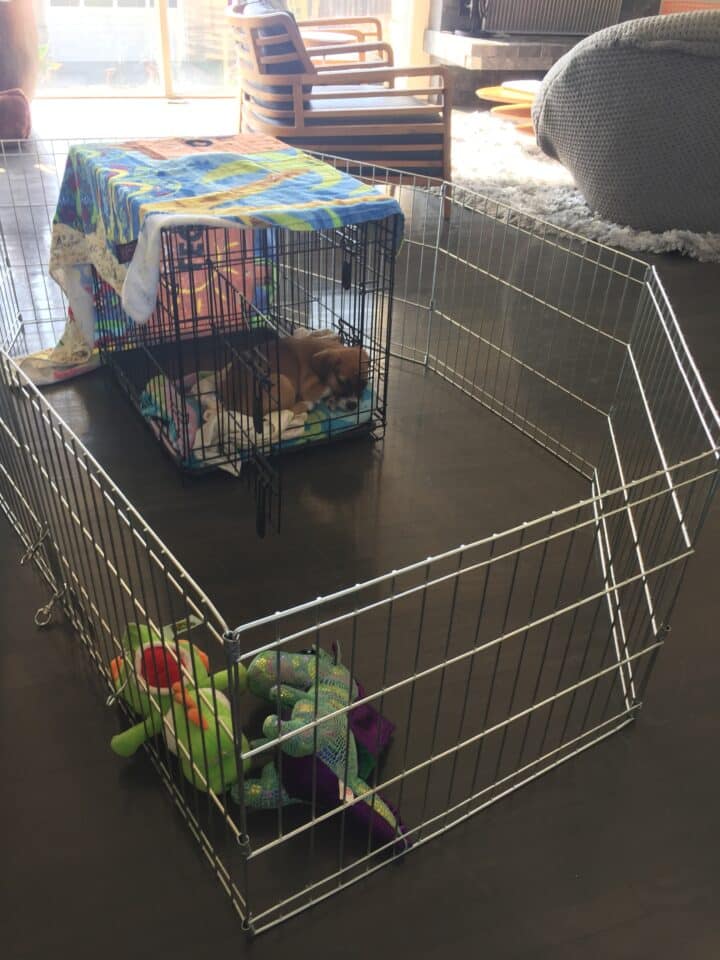
Welcoming a new puppy is one of the most joyous experiences in life. Such an exciting time and so much fun!
Life with an infant dog can also be a little nerve wracking, exhausting and frequently frustrating. No one wants to “mess-up” their puppy, and there’s a lot conflicting information on the Internet, plus advice from well-meaning friends and family.
A professional puppy training and behavior specialist and coach can eliminate the guess work, help you prevent serious behavior problems like separation anxiety, and best of all give you more time to enjoy your puppy.
Dee Green has been a professional dog trainer and canine behavior consultant for more than 20 years. She specializes in puppies up to 18 months, and fearful, anxious and reactive dogs of all ages.
©️2023 Dee Green
